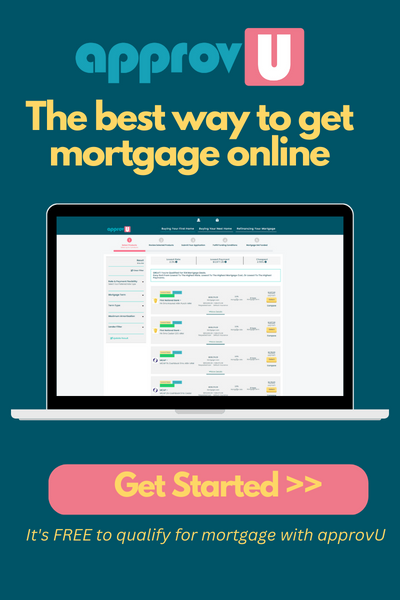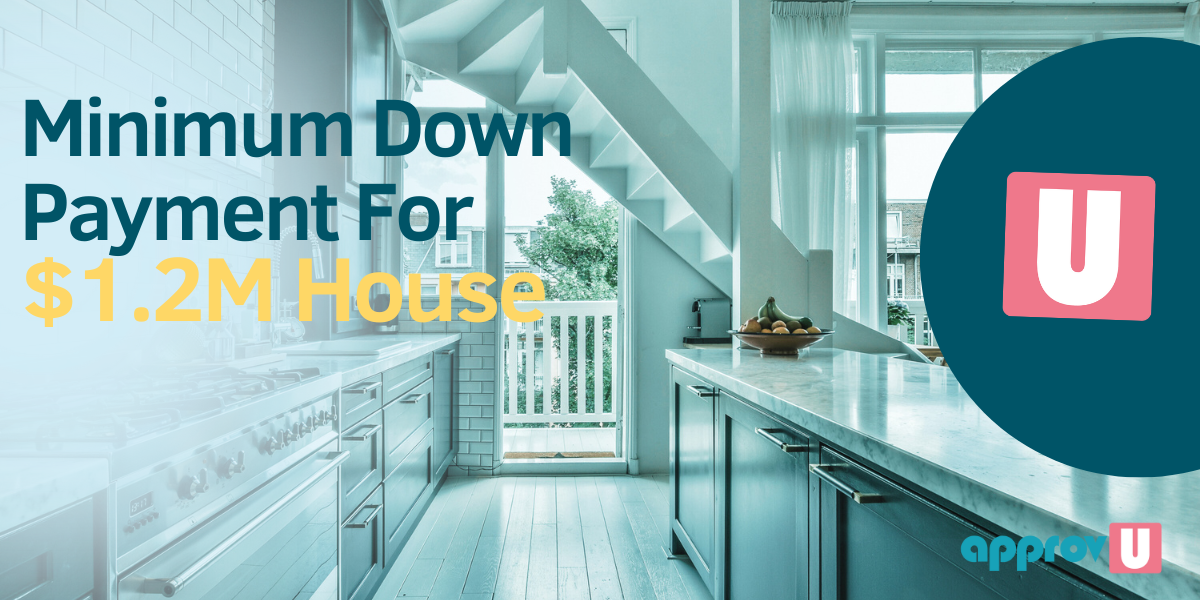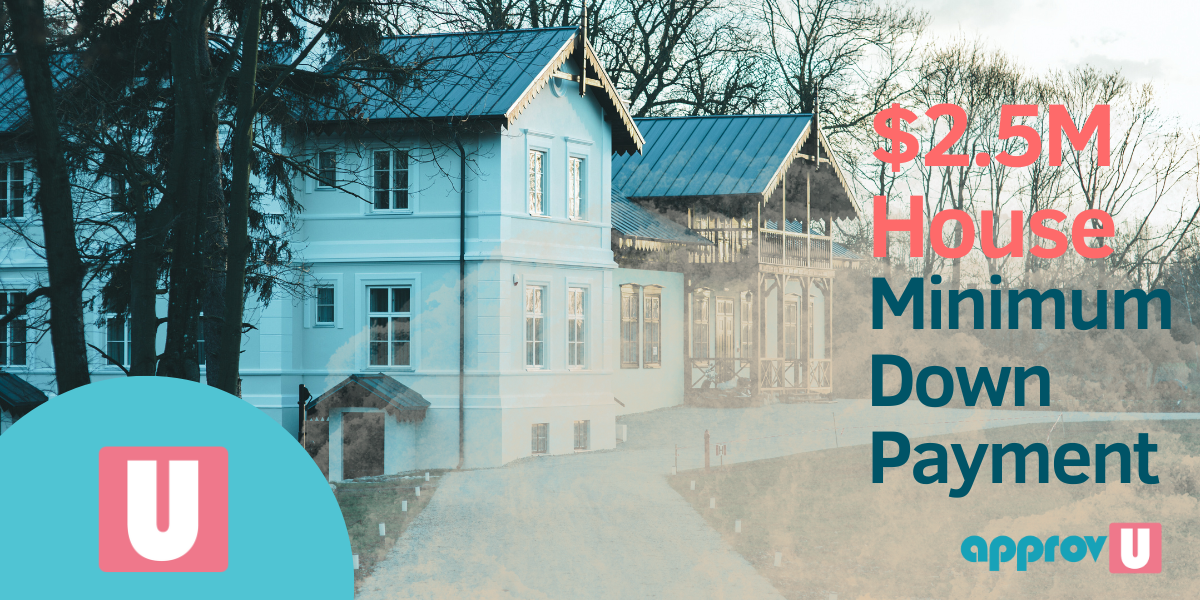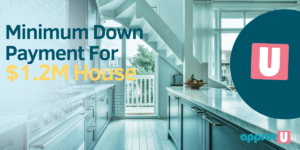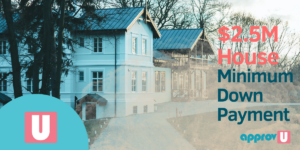A mortgage is a significant financial commitment that can impact your short- and long-term lifestyle.
If you’re considering taking out a $500,000 mortgage, it’s important to understand its true cost.
In this article, we’ll take a closer look at the factors contributing to the cost of a $500,000 mortgage, including monthly payments, interest rates, and additional costs.
The Cost of a $500K Mortgage
You need to know the interest rate, loan term, and type of mortgage to accurately determine the $500,000 mortgage cost.
Let’s assume a few common scenarios:
Cost of a Fixed-Rate Mortgage
If you choose a fixed-rate mortgage with an interest rate of, for example, 3% and a 25-year term:
To calculate the monthly payment, you can use the formula:
Monthly Payment = Loan Amount × Monthly Interest Rate ÷ (1 - (1 + Monthly Interest Rate)^(-Total Number of Payments))
For this example, the monthly interest rate would be 3% ÷ 12 = 0.0025, and the total number of payments would be 25 years × 12 months/year = 300 payments.
Plugging in the values:
Monthly Payment = $500,000 × 0.0025 ÷ (1 - (1 + 0.0025)^(-300)) ≈ $2,372.41 The total payment over the 25-year term would be $2,372.41 × 300 = $711,723.00. Total interest expense over the 25-year term is $209,868.25
It’s important to note that this calculation does not include other expenses like property taxes, insurance, or closing costs, which can vary depending on the location and other factors.
Cost for a Variable-Rate Mortgage
If you opt for a variable-rate mortgage, the interest rate can change over time based on market conditions.
This makes it difficult to determine the exact cost over the entire term. This uncertainty arises from the possibility of fluctuating interest rates.
Let’s assume an initial interest rate of 2.5% and an amortization period of 25 years.
Assuming the interest rate remains constant at 2.5% for the entire amortization period, the monthly payment is approximately $2,239.84. The total interest expense over the entire amortization period amounts to $171,949.34.
However, it’s important to note that the actual cost of a variable-rate mortgage will fluctuate with changes in the interest rate over time.
Understanding the Basics of a Mortgage
A mortgage is a loan specifically designed for buying real estate, such as a house or vacant land. This loan is typically provided by a financial institution such as a bank, credit union, or other lenders.
When you take out a mortgage, you agree to pay back the amount borrowed (the principal), along with an additional amount (interest), over a specific period of time.
The property you’re purchasing serves as collateral for the loan.
If you fail to make the agreed-upon payments, the lender has the right to take possession of the property, a process known as foreclosure.
Mortgage payments usually consist of four parts: principal, interest, taxes, and insurance.
The principal is the original amount borrowed, and the interest is the cost the lender charges for borrowing the money. On the other hand, taxes and insurance are often collected and held in an escrow account to cover property taxes and insurance premiums.
The terms and conditions of a mortgage, including the interest rate and loan duration, can vary greatly depending on different factors.
These factors may include your credit history, current economic conditions, and the type of mortgage chosen.
Overview of Different Types of Mortgages
Understanding the different types of mortgages and how they work is essential to choosing the right mortgage for your financial situation.
There are different types of mortgages available in Canada, including.
Fixed-rate Mortgages: These types of mortgages come with an interest rate that remains constant throughout the loan’s lifespan, usually between one and ten years. As a result, your mortgage payments stay uniform, simplifying budgeting and future financial planning.
Variable-rate Mortgages: Your interest rate may vary based on market dynamics in this mortgage type. While this may introduce some unpredictability in your mortgage payments, it could lead to lower interest rates and decreased expenses.
Open Mortgages: Open mortgages allow you to settle your mortgage fully at any time without penalties. If you anticipate a large influx of money in the near future, such as an inheritance or proceeds from selling another property, this might be a suitable choice.
Closed Mortgages: If you opt for a closed mortgage, early pay-off of your mortgage could result in penalties. However, these types of mortgages usually come with lower interest rates than open mortgages, rendering them a more economical option in the long run.
Factors Affecting Your Mortgage Payment
Various factors need to be considered to determine the regular payment for your mortgage.
These factors include:
- The Loan Amount: A larger mortgage equates to increased monthly repayments.
- Interest Rate: Higher interest rates result in heftier monthly installments.
- Amortization Period: While a longer amortization period leads to lower monthly payments, it also entails paying more interest over the duration of the loan.
- Down Payment: A substantial initial down payment reduces monthly mortgage installments.
- Property Taxes: Property taxes, which can greatly differ based on location, can significantly influence your monthly mortgage payments.
Calculating the $500,000 Mortgage Payments
Consider the aforementioned factors in determining your monthly payments for a $500,000 mortgage. An online mortgage calculator can provide a more precise approximation.
For a mortgage of $500,000 with a 25-year amortization period and a 3.5% interest rate, the monthly payment amount is $2,503.12.
Recognizing how the four components of your monthly mortgage payment – principal, interest, taxes, and insurance – impact your financial state is crucial.
This knowledge allows you to manage your finances, ensuring long-term mortgage affordability effectively.
- Principal: This represents the total amount borrowed. A part of your monthly mortgage repayment is dedicated to reducing the principal.
- Interest: It’s the price you pay for borrowing money. A section of your monthly mortgage payment caters to the loan’s interest.
- Taxes: Property taxes are typically included in your monthly mortgage payment and are paid regularly. The specific amount is based on your residential area and your property’s valuation.
- Insurance: If you secured a high-ratio mortgage, meaning a down payment of less than 20%, mortgage insurance is mandatory. This coverage safeguards the lender if you’re unable to repay the loan.
Additional Costs to Consider
While securing a $500,000 mortgage, it’s crucial to account for extra costs beyond your monthly mortgage repayments.
These include:
Property Taxes
Property taxes, typically paid monthly, are determined by your property’s value. The specific sum you owe is based on your location, and it’s vital to plan for this expense alongside your monthly mortgage installments.
Homeowner’s Insurance
This insurance provides coverage against unforeseen occurrences such as fires, theft, or natural calamities. Homeowner’s insurance is usually paid yearly, but monthly payments can be arranged.
The premium for homeowners insurance depends on your property’s worth and the degree of coverage you select.
Mortgage Default Insurance
Mortgage default insurance is obligatory for high-ratio mortgages (i.e., less than 20% down payment).
Should you fail to repay the loan, this insurance safeguards the lender, but you bear the cost. The premium for the mortgage insurance is influenced by your down payment amount and your property’s value.
Closing Costs
These are charges incurred when finalizing your home acquisition. They include legal fees, title insurance, and appraisal fees, among other expenses. Closing costs could range from 2% to 5% of the property’s buying price.
Hence, planning for these costs alongside your down payment and monthly mortgage installments is crucial.
Considering these extra expenses, you obtain a more precise assessment of a $500,000 mortgage’s actual cost. Budgeting for these costs is vital to ensure long-term mortgage affordability.
Calculating the Total Lifetime Cost of the $500K Mortgage
When getting a $500,000 mortgage, you need to account for the complete cost of the mortgage over the life of the loan.
This involves the cumulative interest payable over the loan period and other charges like property taxes, homeowners insurance, and closing costs.
It is easy to determine the total cost of a $500,000 mortgage with an approvU mortgage payment calculator.
If you borrowed $500K for a mortgage and chose a 25-year repayment period with an interest rate of 4.74%, the total interest costs over the 25-year loan term would be $248,905.50.
As a result, your total payment to the lender will amount to $748,905, comprising the $500,000 mortgage principal and an additional $248,905 in interest charges.
Impact of Interest Rates on a $500K Mortgage Cost
Interest rates affect the total cost of a mortgage.
The interest rate is the price you pay for borrowing money. It is charged by the lender, usually a bank or other financial institution, over the loan’s lifetime.
At a high-interest rate, the total cost of the mortgage increases because you’re paying more to borrow the same amount of money.
On the other hand, at a low-interest rate, the overall cost of the mortgage decreases since you’re paying less to borrow the same amount.
The following table demonstrates the effects of varying interest rates on a mortgage with a borrowed amount of $500,000 and a term of 3 years.
It details total payments, interest, principal, and the remaining balance at the end of the term for each interest rate.
| Loan Amount | Loan Term | Interest Rate | Total Payments | Total Interest | Total Principal | Remaining Balance at Term End |
| $500,000 | 3 years | 2.75% | $83,036.96 | $39,529.85 | $43,507.11 | $456,492.89 |
| $500,000 | 3 years | 3.00% | $85,358.04 | $43,183.26 | $42,174.78 | $457,825.22 |
| $500,000 | 3 years | 3.35% | $87,716.92 | $46,845.15 | $40,871.77 | $459,128.23 |
| $500,000 | 3 years | 3.50% | $90,112.24 | $50,515.19 | $39,597.05 | $460,402.95 |
| $500,000 | 3 years | 4.00% | $95,010.63 | $57,878.39 | $37,132.24 | $462,867.76 |
| $500,000 | 3 years | 4.50% | $100,049.84 | $65,270.26 | $34,779.58 | $465,220.42 |
| $500,000 | 3 years | 5.00% | $105,226.21 | $72,688.25 | $32,537.96 | $467,462.04 |
We can draw several conclusions as the interest rate climbs from 2.75% to 5.00%.
- First, the total interest paid over the 3-year term increases, showing that borrowers would shoulder higher interest charges with increased interest rates.
- Second, the total payments also grow, as more of each payment is allocated towards interest instead of principal repayment.
- As a result, less money goes towards paying down the borrowed sum, and the remaining loan balance shrinks more slowly, implying borrowers make slower headway in reducing their overall debt during the term.
Why Understanding the Full Cost of a Mortgage is Crucial
Understanding the full cost of a mortgage cannot be overstated. Here are several reasons why it is crucial:
Financial Planning: Understanding the total cost of a mortgage is essential for creating a comprehensive financial plan. It enables you to budget and allocate your funds effectively, ensuring you can comfortably manage your mortgage payments without financial strain.
Affordability Assessment: Knowing the full cost of a mortgage helps you determine whether you can afford the monthly payments. It provides a realistic view of the financial commitment involved, allowing you to make informed decisions about your homeownership goals based on your financial capacity.
Comparison of Mortgage Options: The Annualized Payment Rates (APR) captures the total costs of the mortgage and allow you to make an apple-to-apple comparison across different mortgage solutions. APR provides a standardized way to compare and evaluate different loan or mortgage options based on their total cost.
Awareness of Long-Term Commitment: Recognizing the full cost of a mortgage provides insights into the long-term commitment associated with homeownership. It helps you understand how factors like interest rates and loan terms impact your financial obligations over time, ensuring that you are prepared for the duration of the mortgage.
Financial Protection: A clear understanding of a mortgage’s full cost enables you to identify potential risks or challenges. It allows you to plan for unexpected circumstances, such as changes in interest rates or financial setbacks. This level of preparedness ensures you can navigate challenging times without defaulting on your mortgage payments.
Conclusion
Understanding the full cost of a $500,000 mortgage is essential to making an informed decision about your home purchase.
Considering all the costs associated with a mortgage, including monthly payments, additional costs, and total lifetime costs, you can ensure you get the best deal for your financial situation.
It’s important to research and understands all the costs associated with the loan.
This includes comparing different mortgage options, shopping around for the best interest rates, and budgeting for additional costs like property taxes, homeowners insurance, and closing costs.
It’s also important to ensure you’re getting a mortgage you can afford over the long term. This means considering your monthly payments, any changes in interest rates or your financial situation.



